Author: Dr Connie Shin @ Connie Cassy Ompok
Faculty of Education and Sports Sciences, University Malaysia Sabah
INTRODUCTION
This article begins with an account of how I discovered my academic voice, emphasizing the importance of teaching children through culture, play, and active parental involvement. Observing children at play reveals qualities that can endure into adulthood. From the "nurture" perspective, it is crucial to cultivate positive attitudes and attributes in young individuals to help them grow into well-rounded adults. Childhood experiences and upbringing significantly influence one's adult life. Therefore, the formative years are the ideal time to foster a sense of unity and shared values.
Young individuals engage in activities that facilitate cross-cultural connections. Guidance may come from parents or older individuals, and children may form a diverse network of acquaintances across different age groups. Given the critical role early childhood education plays in unlocking children's potential and preparing them to face future challenges, ongoing efforts to improve its quality are essential. This study provides insights and reflections gained from an educational visit to Japan.
The National Standard Preschool Curriculum (NSPC) serves as a guideline for all prescho
ols, promoting balanced and holistic development in alignment with the National Education Philosophy (Ministry of Education, 2017). The curriculum focuses on six key components: communication, spirituality and moral values, humanity, self-development, physical and aesthetic development, and science and technology. These components are designed to cultivate critical and creative thinking, moral values, and innovation, ensuring that Malaysia's preschool education system prepares children to meet the country's future workforce demands, as outlined in the Malaysian Education Blueprint (2013–2025).
The Malaysian government has increasingly prioritized quality control in preschool education, recognizing that a strong early start significantly contributes to children's long-term cognitive and social development, which, in turn, supports the nation's economic progress. Consequently, early childhood education (ECE) has become a central focus for improving educational outcomes. In recent years, research on early childhood education in Malaysia has primarily concentrated on enhancing the curriculum and learning environment.
In Malaysia, preschool education aims to provide learning experiences for children aged four to six years, nurturing their potential across all aspects of development, equipping them with basic skills, and fostering positive attitudes in preparation for primary school. However, the involvement of family and community in a child’s education remains underdeveloped. Research shows that family interaction, peer relationships, and the socio-economic and cultural environment significantly influence a child's overall well-being and development (Ismail et al., 2018; Majzub & Rashid, 2012). These factors are often overlooked when the focus is solely on academic achievement.
Japanese early childhood education (ECE) is marked by a comprehensive approach that emphasizes the integrated development of children’s cognitive, social, emotional, and physical abilities. The focus on play-centered education is a fundamental aspect of this system, in which children participate in both organized and free activities that promote creativity, collaboration, and problem-solving (Akita, 2010; Lewis, 1995). Teaching and learning activities are often shaped by philosophy and belief, integrating diverse cultural and religious influences. These approaches emphasize harmony, a connection with nature, and an understanding of the impermanence of all things.
Hands-on lessons play a crucial role in imparting valuable life skills and fostering positive habits in children. Learning these foundational skills at an early age is vital, as it prepares children for future responsibilities while promoting good habits, such as tidiness and organization. Early education in these areas not only supports personal growth but also lays the groundwork for a disciplined and well-rounded adulthood. During free play, children are encouraged to interact with their peers, fostering social connections and collaboration. This approach emphasizes building relationships and developing interpersonal skills, rather than encouraging solitary play, to promote a sense of community and mutual understanding among children.
To name a few, cultural traits of a country certainly influence the way education policies are formulated. Precision in daily activities has become a key aspect of life. The country's educational priorities are shaped by the drive to excel, with cultural values playing an important role. For instance, it is often said that the Japanese "eat with their eyes," as food is prepared neatly and attractively. Cleanliness and creativity within the community are highly valued. Perhaps the education system reflects the essence of the country’s psyche and culture, incorporating these values into its approach.
This uniqueness is reflected in the activities conducted throughout the year. Here are a few examples:
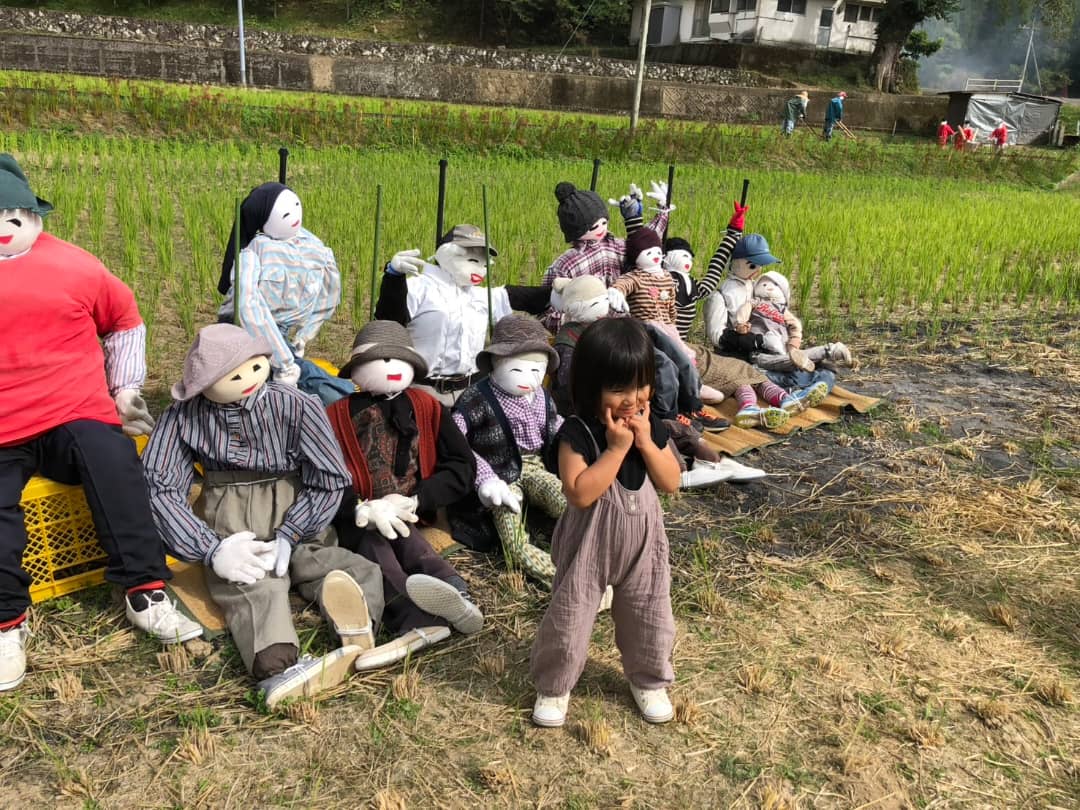
Community involvement in Japan is deeply embedded in the culture, with a strong emphasis on collective responsibility, cooperation, and mutual support.
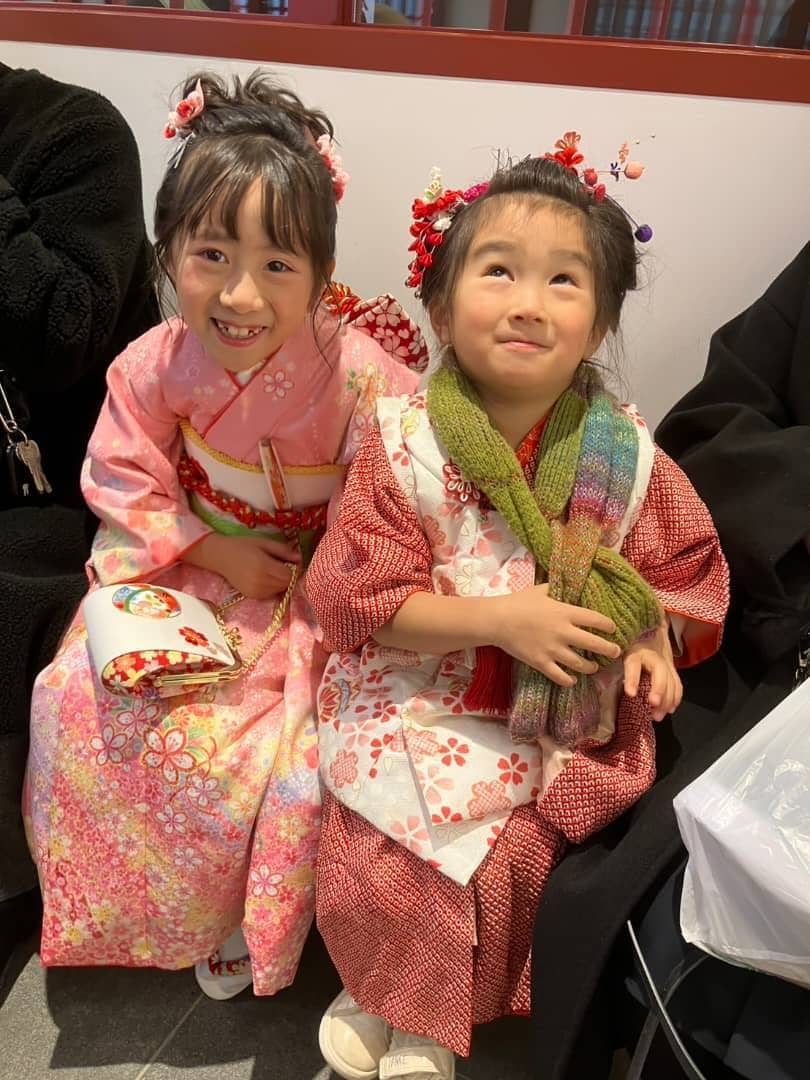
Japanese girls Akari and Satsuki, dressed in traditional attire, visit a shrine in Tokyo for the Shichi-Go-San festival. Held annually on November 15, this festival celebrates the growth and well-being of young children, marking an important cultural milestone in Japan.
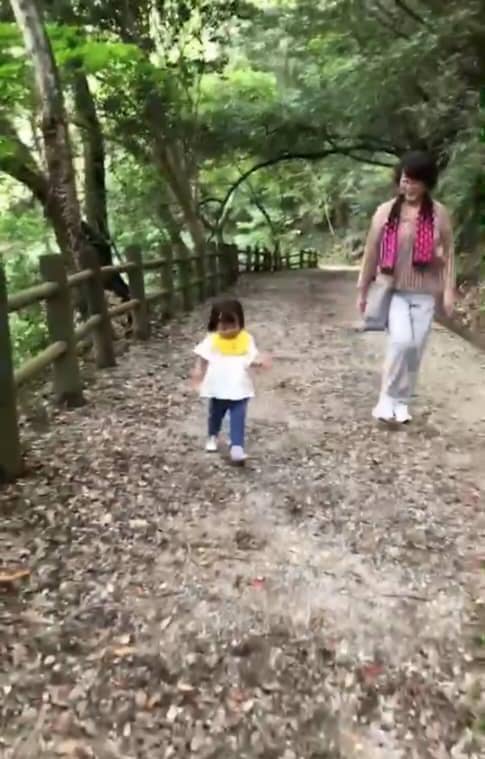
Madam Toh Keiko always spends time exercising up the hill with her grandchildren, enjoying both the physical activity and the opportunity to bond with them. The hill, surrounded by lush greenery, offers a peaceful escape from the hustle and bustle of everyday life. As they climb, she encourages her grandchildren to appreciate the beauty of nature, teaching them valuable lessons about perseverance and the importance of staying active. The shared experience not only strengthens their physical health but also deepens their connection, creating lasting memories of quality time together.
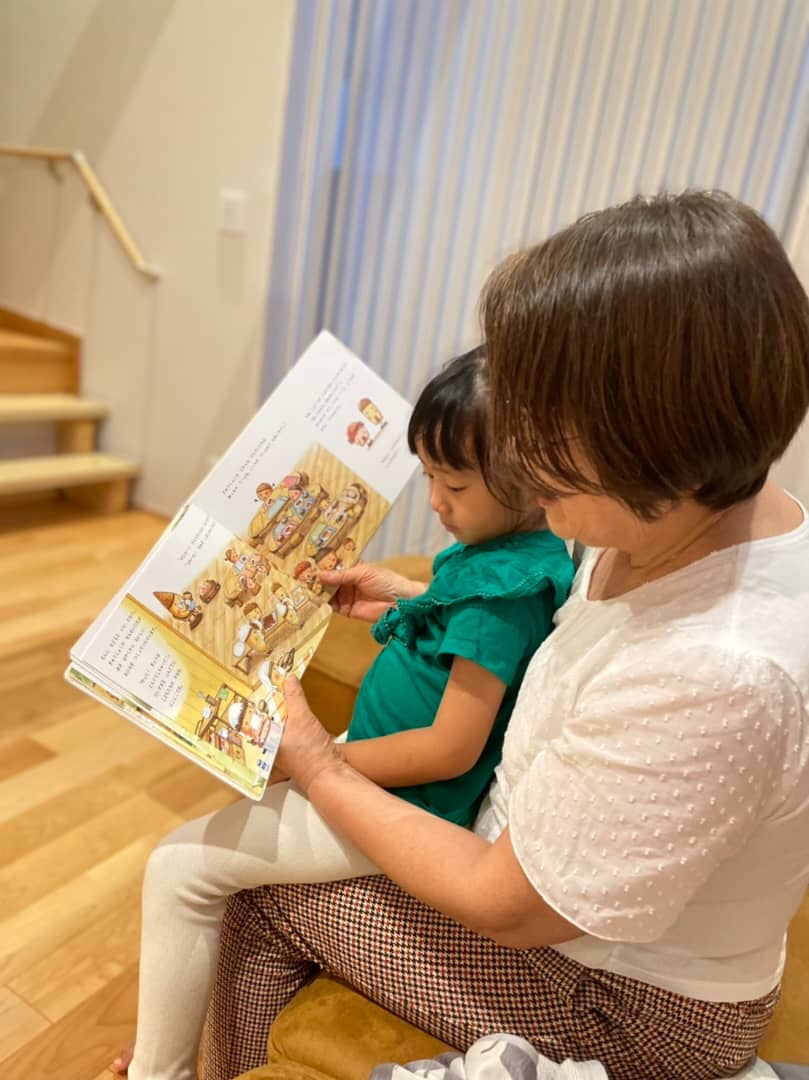
Madam Toh Keiko always spends time reading storybooks to her grandchildren, creating a warm and nurturing atmosphere in their home. As they gather around, she brings the stories to life with her expressive voice, capturing their imaginations and sparking their love for reading. Whether it’s a fairytale or a story about adventure, her grandchildren eagerly listen, asking questions and engaging with the characters.
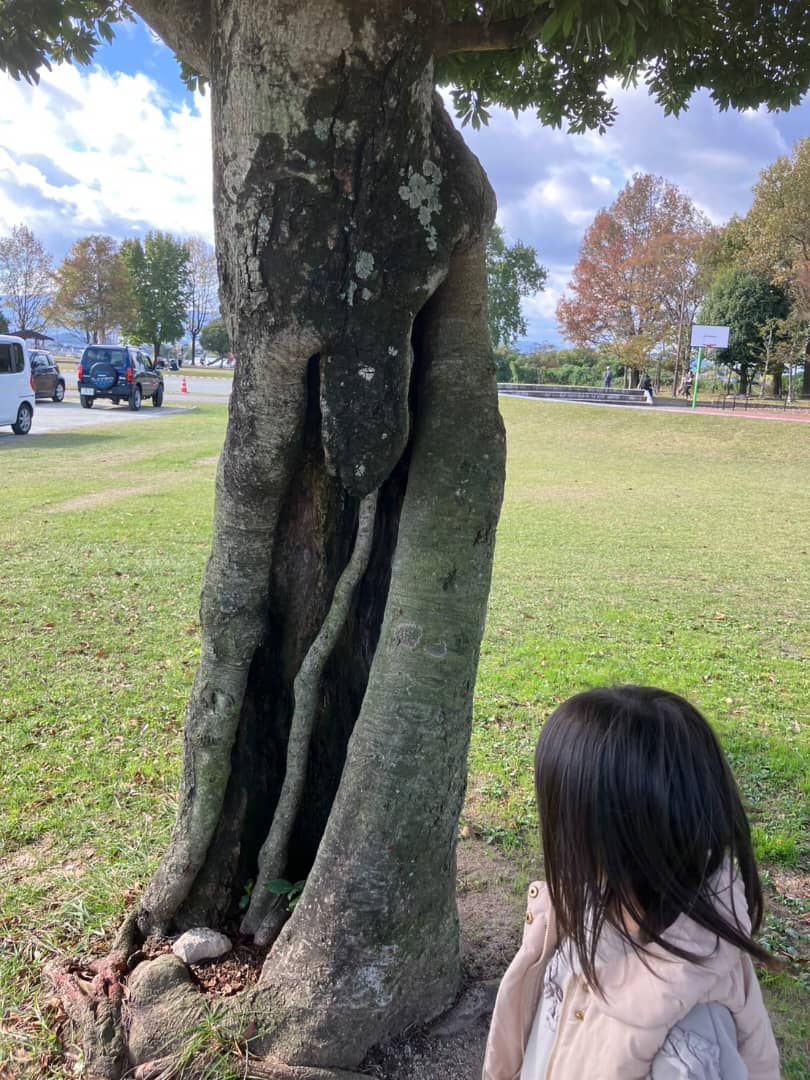
Lead a life closely connected to nature, and take time to appreciate its grandeur, beauty, and wonder. Engage with the world around you, exploring the various elements of life and developing a deep curiosity about their nature and organization. Cultivate an awareness of the intricate balance that exists in the natural world.
Acknowledge the importance of all life forms by fostering a sense of respect and appreciation. Take the time to observe and learn about the animals and plants living in your surrounding environment, allowing these interactions to deepen your understanding of the interconnectedness of life. Through this connection, you not only develop a greater appreciation for nature but also nurture a sense of responsibility toward preserving and protecting it.
Familiarity with culture and tradition is essential to nurture awareness of the connection between society and international understanding. The cultural traits of a country certainly influence the way education policies are formulated. Precision in daily activities has become an important value, influencing the way tasks are carried out. National educational priorities in Malaysia are driven by the need for excellence, and cultural elements play a significant role in shaping these priorities.
Despite the growing recognition of the importance of ECCEs, several challenges persist within Malaysia’s preschool education system. Parental engagement remains a critical issue, with studies showing that limited involvement—due to language barriers or a lack of awareness, thus hinders the effectiveness of multicultural education. Parental involvement and community support are crucial for a child's early learning, and without them, ECCE programs struggle to reach their full potential.
Fostering the value of respect for tradition and culture, as well as love for one’s country and regions is essential. Equally important is instilling respect for other countries and a desire to contribute to world peace and the development of the international community. Given the significance of early childhood education as the foundation for lifelong development, it plays a crucial role in shaping individuals who will contribute positively to the global community.
Considering the importance of early childhood education as the foundation for the lifelong formation of one’s character. Abdullah's (2023) study explored the character development of preschool-aged children, highlighting a positive shift towards a scholarly focus on the humanity aspects of early childhood education. Early education plays a crucial role in building children's potential and preparing them for future challenges, and efforts to enhance its quality must continue. In future, Children must also be equipped with the foundation necessary to become creators of a of a sustainable society while working toward the goals and objectives of such education.
This can be achieved by encouraging each child to recognize their inherent goodness and potential, respect others as worthy individuals, collaborate with diverse people, overcome various social changes, and pave the way for a fulfilling future. Promoting voluntary activities and allowing children to lead a life that reflects their developmental needs—based on the idea that young children utilize experiences essential to their growth—can help them fully demonstrate their abilities in an emotionally stable environment.
In providing comprehensive instruction through play as a spontaneous activity of children in close cooperation with families while looking at the connection with post-elementary school education and life-long learning. Traditional games, in particular, hold significant value as they engage children in activities that promote social interaction, problem-solving, and cultural understanding, further enriching their developmental experiences.
Education during early childhood is crucial in cultivating a foundation for lifelong character development. Teachers must strive to build a relationship of trust with young children and create a positive educational environment in collaboration with them. This can be comprehensively achieved through play-centered instruction, considering that play—a spontaneous activity for children is an essential aspect of learning. Play helps cultivate a balanced development of both physical and mental aspects.
To encourage children to look forward to and stay motivated for future activities, it is important to help them gain perspective on and reflect upon their play and daily life experiences. Teachers should actively foster children's voluntary activities through various approaches, empowering them to take initiative and engage with their surroundings. Additionally, supporting early childhood education both at home and within the community is crucial to enriching children's overall lives. By strengthening these efforts, children's development can be enhanced in a holistic way, ensuring they are well-prepared for future challenges.
Given the close interrelationship between mental and physical health, teachers should promote the flexible development of both the body and mind in children. This approach allows children to experience a sense of self-awareness and fulfillment, which is fostered through warm relationships with teachers and peers. Teachers should encourage children to build the ability to relate to others in a group, where each individual is valued.
In doing so, teachers should help children act with confidence, showcasing their abilities within the group. This process involves recognizing their own unique characteristics and positive qualities, while also receiving affirmation from teachers and friends. Such interactions support the development of a healthy sense of self and social connection, both of which are vital for a child's overall well-being.
In conclusion, childhood and the experiences we have during our formative years play a defining role in shaping our adult lives. When it comes to unity, the most influential period is during these early years. Young people engage in activities that foster cross-cultural interactions, and depending on their age, they may be guided by parents or older individuals while forming friendships within a multi-racial community. Let us work together to build a beautiful, united Malaysia.
The author would like to thank Madam Toh Keiko (藤 圭子), from Kasuga City, Fukuoka Prefecture (福岡県春日市), for sharing photos of how she raises her two beautiful grandchildren.
REFERENCES
- Akita, K. (2010). Early childhood education in Japan: A historical perspective. International Journal of Early Childhood, 42(2), 101–116. https://doi.org/10.20617/reccej.59.1_3
- Abdullah, M. A. R. (2023). Learning moral values through cartoons for Malaysian preschool-aged children. International Journal of Learning, Teaching and Educational Research, 22(6), 370-394. https://doi.org/10.26803/ijlter.22.6.20
- Ismail, I. M., Anis, S. K., Subramaniam, T. S., Amiruddin, H., & Ismail, M. E. (2018). Penerapan elemen perkembangan kognitif, psikomotor dan sosio-emosi dalam permainan dalam mencapai objektif Kurikulum Standard Prasekolah Kebangsaan. Online Journal for TVET Practitioners, 1, 1-10. ISSN 2289-7410
- Majzub, R. M., & Rashid, A. A. (2012). School readiness among preschool children. Procedia-Social and Behavioral Sciences, 46, 3524–3529. http://dx.doi.org/10.1016/j.sbspro.2012.06.098
- Ministry of Education. (2017). National Preschool Curriculum Standards (KSPK). Ministry of Education.
- Lewis, C. C. (1995). Educating hearts and minds: Reflections on Japanese preschool and elementary education. Cambridge University Press.


